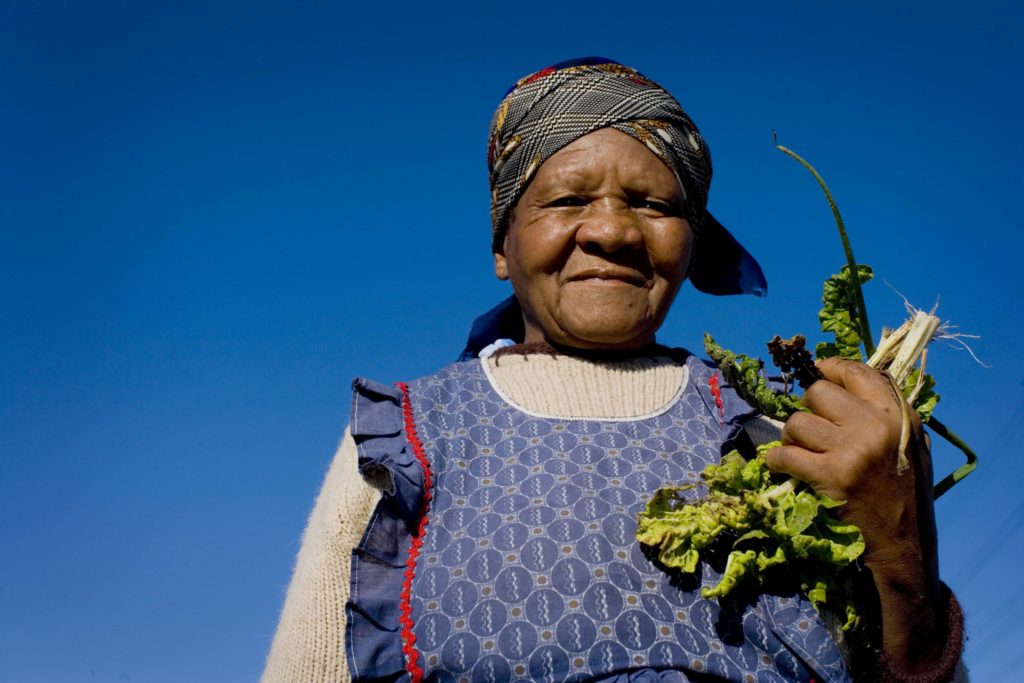RADAR

ADDRESSING HUNGER What is the government doing about food security?
While there was little mention of food security in the 2022 State of the Nation Address (SONA), many can’t help but wonder if anything is being done to address the root causes of hunger and ensure that South Africa is food secure. What is the government’s priority on food security?
BY Michelle Banda | Journalist, Boksburg, Gauteng
FOOD INSECURITY is a global epidemic that many countries struggle with and South Africa is no exception. At least 11.8 million people in SA are hungry and 2.5 million South Africans experience hunger every day. Hunger in South Africa has been worsened by the Covid-19 pandemic and by the loss of jobs for many during lockdowns.
Christo van der Rheede, executive director at AgriSA, expressed concern at the vague mention of agriculture in the SONA. Van der Rheede told the Daily Maverick that although the SONA doesn’t direct food security, it should touch on some of the important underlying aspects contributing to South Africa becoming a more food-secure country.
“The government needs to take responsibility and action to achieve the objectives of food security, which is about establishing an enabling environment that involves the affordability of food, accessibility of food, quality and safety of food, as well as sustainable natural resources and resilience of the environment.”
“Currently, the Agriculture and Agro-processing Master Plan and the Economic Recovery and Reconstruction Plan align with the National Development Plan for 2030. Both are social compact programmes that aim to expand agricultural production, broaden the inclusion of black farmers and boost the sector’s competitiveness and ability to create jobs. The government must take action now and engage with the private sector to implement these plans to start turning the wheel.”
The president’s spokesperson, Tyrone Seale, said: “It is not that food security is not prioritised. The focus is on imperatives of food security and employment as reflected in the Presidential Employment Stimulus and in the 2022 State of the Nation Address. Through these, we support small-scale farmers through a Solidarity Fund to help expand their production.
“So far, over 100 000 farmers have already received input vouchers to expand their production. The agricultural sector has also recognised the importance of supporting small-scale farmers and integrating them into value chains and the production of specific crops that the president touched on but did not elaborate on, because the elaboration will be done by ministers and their clusters in the coming weeks.”
Roshila Nair, basic needs convener at the Covid-19 People’s Coalition, says: “Working with grassroots communities, we are keenly aware of the need for food and the importance of localising food production at community level. For this, people must be provided [with] land and resources to grow food for subsistence, health and to make a livelihood if possible. Water access and land for this is a problem.”
“People are willing to work to grow food and to change eating strategies from individual households to community kitchens so there is communal production and care of health and nutrition needs. These kinds of decentralised and empowering objectives and strategies ought to be implemented with government support and budgeted for.”
South Africa also has a double burden of malnutrition, over-nutrition and under-nutrition. Improving the food insecurity situation would also mean eliminating malnutrition. Nair says this can work if local structures have a solid understanding of the division of responsibilities and a desire to support the work.
“Currently, we see local grassroots communities taking up many such initiatives successfully with help from NGOs and the public and via their own sheer effort and will.”
“The truth is, poverty, hunger and malnutrition can never be addressed from the outside. It will succeed only if people have the agency to grow food, feed, and improve health not only for themselves.”
| Dates To Remember |
|
April 2 – World Autism Awareness Day 4 – International Day for Mine Awareness and Assistance in Mine Action 6 – International Day of Sport for Development and Peace 7 – International Day of Reflection on the 1994 Genocide in Rwanda 7 – World Health Day 15 – Good Friday 17 – Easter Sunday 21 – World Creativity and Innovation Day 22 – International Mother Earth Day 23 – English & Spanish Language Day 24 – International Day of Multilateralism and Diplomacy for Peace 25 – World Malaria Day 28 – World Day for Safety and Health at Work 30 – Our Lady, Mother of Africa 30 – International Jazz Day May 1 – St Joseph the Worker, Workers’ Day 3 – World Press Freedom Day 8 – Remembrance and Reconciliation for Victims of Second World War 8 – World Migratory Bird Day 15 – International Day of Families 17 – World Telecommunication and Information Society Day 20 – World Bee Day 21 – World Day for Cultural Diversity for Dialogue and Development 22 – International Day for Biological Diversity 29 – Ascension of the Lord 29 – International Day of UN Peacekeepers 30 – World No-Tobacco Day |
